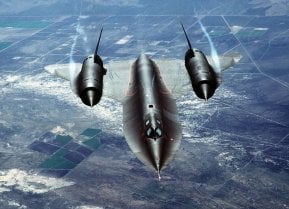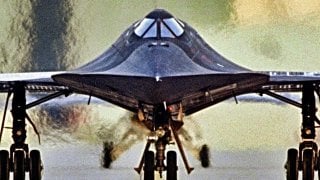SR-71 Blackbird 'Proved Its Worth' Hitting Mach 3.2 on Final Flight
As the 25th anniversary of the SR-71 Blackbird’s final flight approaches on October 9, 2024, aviation enthusiasts still revere the legendary spy plane.
Summary and 4 Points You Need to Know: As the 25th anniversary of the SR-71 Blackbird’s final flight approaches on October 9, 2024, aviation enthusiasts still revere the legendary spy plane.
-Retired in 1999, the SR-71 was an iconic Cold War-era aircraft known for its Mach 3.32 speed (2,200 mph) and 85,000-foot service ceiling.
-Although satellites eventually became a more cost-effective option for reconnaissance, the Blackbird’s unique aesthetics and blistering speed left a lasting impact on its pilots and the public.
-Its final flight from Edwards Air Force Base marked a bittersweet farewell, and many of the 32 SR-71s built are now displayed in museums across the U.S.
SR-71 Blackbird: A Look Back at the Spy Plane That Defied Speed Limits
The twenty-fifth anniversary of the SR-71’s final flight is fast approaching. On October 9, 1999, the celebrated Blackbird made its last flight. Although retired since before the turn of the century, the SR-71 still retains a cult-like status amongst aviation enthusiasts who remember fondly the airframe’s distinct aesthetics and distinct speed.
SR-71 Blackbird Spy Plane, Explained
Around the conclusion of the Cold War, the SR-71 was falling out of favor. The shift in attitude was owed in large part to the Soviet decline, which spoiled the SR-71’s most important reconnaissance target. However, the sharp decline was also owed to the change in public sentiments that correlated with the fall of the Soviet Union.
No longer were US citizens willing to spend so casually on defense projects. And an airframe like the SR-71, one so egregiously expensive to operate, found itself on the wrong side of public opinion.
The SR-71’s cost became harder to justify too. Alternative reconnaissance platforms such as satellites became available as a cheaper and more effective solution. While the satellite was fine concerning intelligence gathering, the device didn’t quite inspire the imagination in the same way as the SR-71. With a maximum speed of Mach 3.32 (2,200 miles per hour) and a service ceiling of 85,000 feet, the SR-71 was a marvel of aeronautical engineering.
Former Blackbird pilots recount the jet as, “an unforgiving endeavor, demanding total concentration. But pilots were giddy with their complex, adrenaline-fueled responsibilities. At 85,000 feet and Mach 3, it was almost a religious experience. Nothing had prepared me to fly that fast… My God, even now, I get goosebumps remembering.”
Given the emotions that the SR-71 inspired amongst pilots, and an enthusiastic public alike, the airframe’s retirement was especially bittersweet.
One Last Flight
On October 9, 1999, at Edwards Air Force Base in southern California, the SR-71 roared away from the runway for the last time. From below, a crowd of onlookers watched, and listened, as the SR-71 went supersonic.

To help the onlookers below spot the streaking jet, which had climbed to 80,100 feet and accelerated to Mach 3.2, the pilots initiated a fuel dump, which was visible from the ground. Moments later, the spectators were able to hear two sonic booms – one from each end of the aircraft as it reached supersonic speeds.
Today, many of the 32 SR-71s that were built are on display. Six are in California, while several more are sprinkled from coast to coast. I’ve been fortunate to see the SR-71 (and its A-12 prototype) in person many times. The jet is visually striking, spear-shaped through the fuselage, and finished in black.
It’s not hard to imagine the jet streaking through the upper atmosphere at Mach 3.
About the Author: Harrison Kass
Harrison Kass is a defense and national security writer with over 1,000 total pieces on issues involving global affairs. An attorney, pilot, guitarist, and minor pro hockey player, Harrison joined the US Air Force as a Pilot Trainee but was medically discharged. Harrison holds a BA from Lake Forest College, a JD from the University of Oregon, and an MA from New York University. Harrison listens to Dokken.
Image Credit: Creative Commons and/or Shutterstock.


